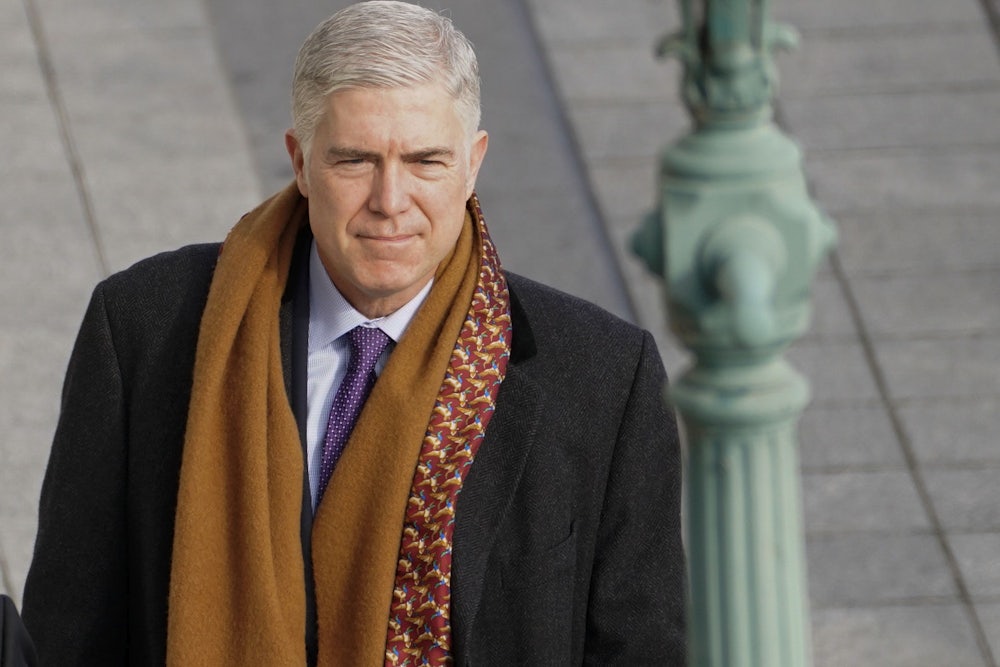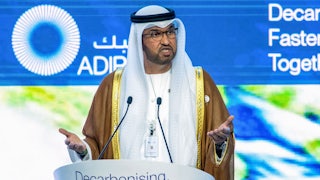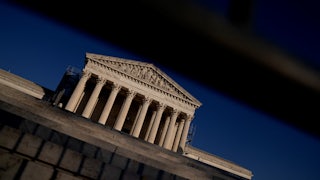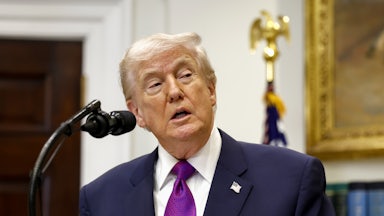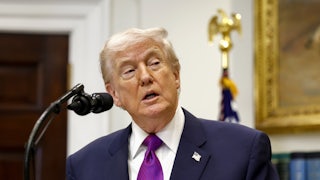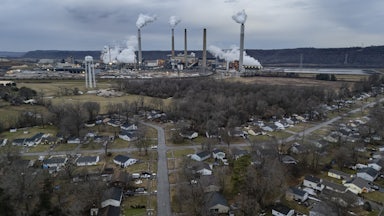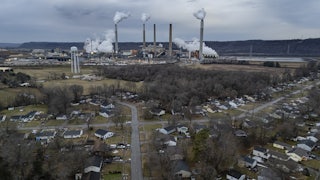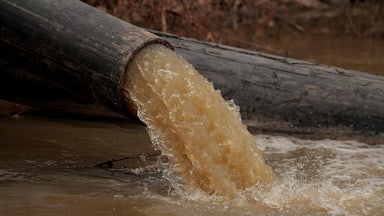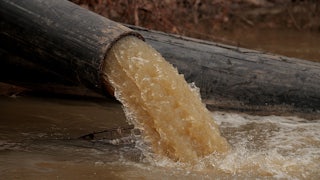Billionaire Philip Anschutz has made a lot of smart investments over the course of his career, having leveraged his father’s oil and gas business into a sprawling business empire that’s come to include not just fossil fuel extraction but sports teams, a Christian-themed production company, railroads, Coachella, and large parts of Los Angeles. Among his best investments, though, might be those he’s made in Supreme Court Justice Neil Gorsuch.
Gorsuch has well-documented ties to Anschutz and his private holding company, the Anschutz Corporation. For 10 years, starting in 1995, Gorsuch worked at a firm representing Anschutz’s business interests. The 84-year-old magnate personally campaigned for Gorsuch to be appointed to the Tenth Circuit Court of Appeals during the George W. Bush administration. Since then, the justice has been, per The New York Times, a “semi-regular” speaker at Anschutz’s Davos-meets-Yellowstone-style ranch near Greeley, Colorado, called Eagle’s Nest, on subjects such as the rule of law. Gorsuch co-owned a property in the Centennial State with Anschutz’s chief counsel and an Anschutz executive, and sold it off just after his appointment to the Supreme Court.
And now, on Wednesday, Neil Gorsuch will be hearing oral arguments in a case that could significantly ease regulations on Anschutz’s businesses. Loper Bright Enterprises v. Raimondo, the case in question, is one of a pair of decisions that, once decided, could overturn the so-called Chevron deference, a legal precedent that (broadly speaking) grants federal agencies the authority to interpret federal statute. The term “Chevron deference” dates to the original 1984 case Chevron v. Natural Resources Defense Council. Gorsuch’s own mother was head of the Environmental Protection Agency when the NRDC sued it to block a set of industry-friendly rules that the EPA was proposing to institute. Chevron—which stood to benefit from the lax new regulations—brought a countersuit after the NRDC won the case against the EPA. An ensuing Supreme Court decision in the oil company’s favor, handed down after Neil Gorsuch’s mother had been forced to resign over unrelated matters, established what is now known as the Chevron deference, which holds that federal courts should largely defer to federal agencies’ interpretation of congressional statutes. While the initial decision was made against environmentalists, it’s since been used to uphold more stringent environmental rules, among other federal regulations, that businesses—and especially corporate polluters—dislike. Overturning it has become a prize for the right-wing legal movement.
Gorsuch hasn’t exactly been shy about his disdain for Chevron deference. In 2022, he wrote in one dissent that it deserved a “tombstone no one can miss,” out of respect for “the ordinary individuals who are unexpectedly caught in the whipsaw of all the rule changes a broad reading of Chevron invites.”
Anschutz may well be among those “ordinary individuals” Gorsuch had in mind. The Washington Examiner owner has extensive connections not just to Gorsuch but to a network of Republican-aligned groups eager to see Chevron deference go. He’s funded Americans for Prosperity, the right-wing nonprofit representing plaintiffs in the Loper case. Anschutz’s foundations have also donated generously to other groups that have filed amicus briefs in support of overturning Chevron, including the Mountain States Legal Foundation, the Pacific Legal Foundation, and the National Right to Work Legal Defense Foundation. He’s donated, as well, to the Federalist Society, which has been a key player in planting right-wing judges throughout the judicial branch. Since 2016, Anschutz has also given generously to Republican politicians and campaign groups, including the National Republican Senatorial Committee and the Republican National Committee.
Watchdog groups, including Accountable.US, have called on Gorsuch to recuse himself over his relationship with Anschutz. As of writing this, on Tuesday afternoon, he hasn’t done so. Should Gorsuch eventually opt to side with Loper Bright Enterprises and overturn the Chevron doctrine, it’ll cement the Supreme Court’s reputation as a pay-for-play venue where billionaires can fetch a big return on their investments in future Supreme Court justices and the organizations that help them into their august robes.
